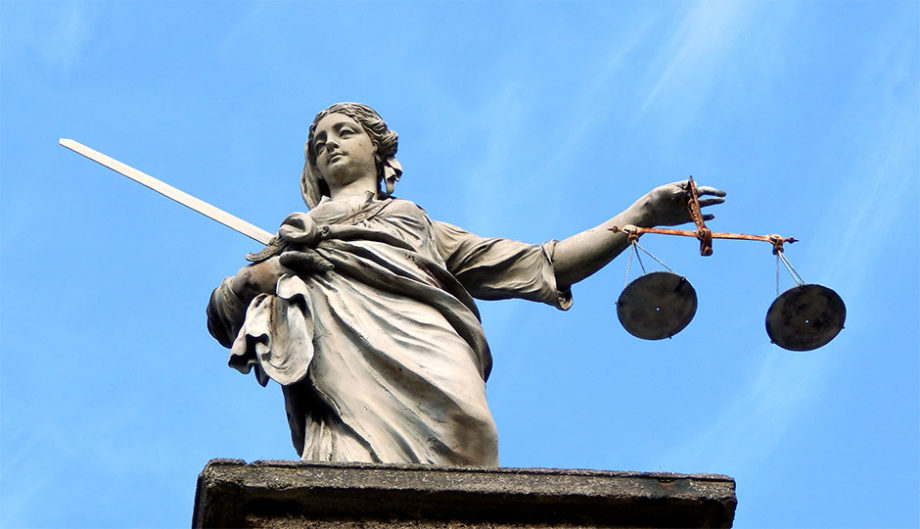
Despotic regimes the world over don’t like citizens going to court to challenge government. The badge of an authoritarian regime is the holding close of power, unchecked by courts or judges. But even in friendly nations with advanced justice systems and proud traditions of parliamentary democracy, a narrative has started of “taking back control from the courts” and curtailing challenges to government action.
This is happening in the name of political rather than public interest. We need to be ever vigilant of this trend reaching these shores. Recent attacks on judges in Poland are a major concern and have been documented elsewhere. Closer to home, some members of government in the UK have said the relationship between the political and judicial arms should be ‘updated’. This is based on the view in some quarters that judges have themselves gone too far and encroached on the role of Government and Parliament. – the idea being that law is for the lawyers, but politics is for Parliament and the Government.
We need to return to some basics, and no better time than this week, as we conclude the inaugural ‘Justice Week’ in Ireland. The legitimacy of the State is predicated on the rule of law and respect for the separation of powers. Our Constitution strikes a careful balance between the executive, legislative and judicial branches of State. An independent judiciary is a must. An independent legal profession is a must. An independent referral bar is a vital component in preserving this legitimacy. An independent Bar safeguards access to justice for all citizens, without discrimination.
Recent political commentary here in Ireland also gives cause for concern. The day before the recent General Election a barrister who was also a candidate in the election was criticised for previously acting for the former leader of Sinn Fein, Gerry Adams. While doubtless not intended, such criticism risks damaging the administration of justice. The premise underlying this criticism was the idea that barristers are free to pick and choose their clients, and secondly should be regarded as endorsing or promoting their clients’ views. Neither of these assumptions is correct.
All barristers are required to follow a fundamental rule known as the “cab- rank” rule. Like a cab driver, barristers are required to act on a first come, first served basis. The rule is central to the job we do and what we’re about. The rule obliges a barrister, if available, to accept a brief in any case in the field in which he or she professes to practice. It is their duty to be independent and free from any influence, especially such as may arise from their personal interests or external pressure, in the discharge of their professional duties as barristers.
The main purpose of the cab-rank rule is to ensure all litigants can obtain the services of a barrister. The thinking is that if barristers are permitted to pick and choose their clients, there is a real danger some litigants will find it impossible to get legal representation.
No matter how vile the crime or unpopular the cause, everyone is entitled to competent representation. Barristers, like doctors, are not required to love their clients or like their views. Sometimes the greater the disconnect between a barrister and the client’s cause, the greater the badge of honour. The late great Garret Cooney, not widely known for his rabid liberal views, represented David Norris in his challenge to the laws criminalising homosexuality.
There are some exceptions to the cab-rank rule set out in the Bar’s Code of Conduct. These include where a barrister is already professionally committed, where a conflict of interest arises or is likely to arise or where they possess confidential information entrusted to them by another client and it would be prejudicial to that client’s interests to accept the brief.
The rule is a fundamental value of the Bar of Ireland and expression is found in respected legal systems across the world. It is succinctly stated in Article 18 of the UN Basic Principles on the Role of Lawyers: “Lawyers shall not be identified with their clients or their clients’ causes as a result of discharging their functions”.
Back as far as 1998, the UN Special Rapporteur on the independence of judges and lawyers, noted the increased number of complaints “concerning Governments’ identification of lawyers with their clients or their clients’ causes, especially lawyers representing the accused in politically sensitive cases. Identifying lawyers with their clients’ causes could be construed in many circumstances as intimidation and harassment, against which Governments have an obligation to protect lawyers.”
A former Chief Justice of Australia, Brennan CJ put it well when he said “ if access to legal representation were dependent on counsel’s predilections as to the acceptability of the cause or the munificence of the client, it would be difficult to bring unpopular cases to court and the profession would become the puppet of the powerful.”
What good independence? Whether in election times or not, an independent bar is a reassurance to the public, an aid to the judiciary and a fundamental value of the State.
Micheál P. O’Higgins SC, Chairman, Council of The Bar of Ireland